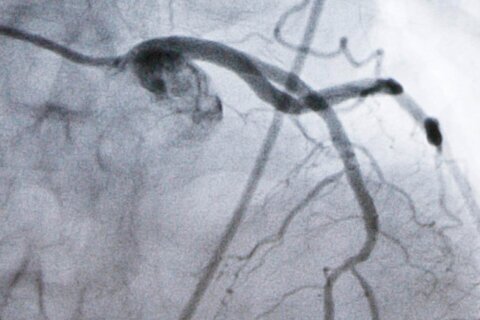WASHINGTON — The Washington D.C.-area just got a big lesson in the power of smoke.
One person died and dozens more were hospitalized after smoke filled a Metro train that had just left the L’Enfant Plaza station on Monday afternoon.
Victims’ upper airways were affected, then their lower airways as particles in the smoke traveled down their respiratory tract.
Experts say smoke does damage on many levels, and in the case of a fire is actually deadlier than the blaze itself.
“What happens is the smoke that is inhaled has a lower percent of oxygen than normal room air does,” says Dr. Marsha Seidelman, an internist and pulmonary specialist in Silver Spring, Maryland.
She says that can lead to carbon monoxide poisoning, while the stuff trapped in the smoke — gases, vapors and particles — affects the upper and lower airway, and then the entire body.
That toxic brew tends to do more damage in closed spaces like, say, a subway car. Seidelman says, “The level of oxygen in the air might be even lower than otherwise and of course, it is more concentrated because there is less circulation.”
Those who are most at risk of trouble are asthmatics, people with allergies and longtime smokers who already have respiratory problems.
Initial treatment includes tending to swelling in the airway and checking carbon monoxide levels in the body.
And while symptoms most often present themselves immediately, it can take time for signs of trouble to appear.
Seidelman says sometimes significant exposure to smoke can lead to a certain type of asthma called “reactive airway syndrome.”
“That can occur over a long period of time,” she says “and it is really unpredictable in the beginning whether that will happen or not.”
She says that is one of the reasons why survivors of the Metro disaster are likely to be monitored for possible problems down the road, and have already been told “to call their doctor if there is any increase in cough or shortness of breath.”







